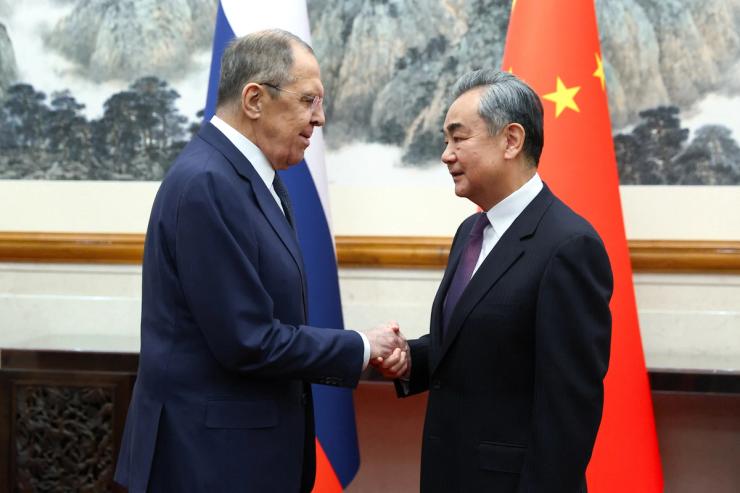The News
Nations that have typically held an unfavorable view of the US seem to be deepening their ties, the Institute for the Study of War suggested. Officials from Belarus, China, Iran, North Korea, and Russia held at least 10 bilateral meetings in one week in April, the ISW noted, a sign of the “deepening multilateral partnership these states are constructing to confront the West.”
SIGNALS
‘Axis of upheaval’ threatening Western dominance
Moscow, which has been cut off from much of the world by sanctions in response to its invasion of Ukraine, has increasingly relied on Beijing to import goods. Russia is also being propped up with military help from Iran and North Korea, Andrea Kendall-Taylor and Richard Fontaine wrote in Foreign Affairs. The result is an “axis of upheaval” that is “fundamentally altering the geopolitical landscape.” Though they have not forged a formal alliance, the partnership between the four countries has disrupted Western dominance around the world. “The axis is ushering in an international system characterized by two orders that are becoming increasingly organized and competitive,” the authors wrote.
World on the brink of ‘second Cold War’
The emergence of the axis has given rise to a new Cold War, columnist Niall Ferguson argues in Bloomberg. For now, those tensions haven’t given way to a third World War — but “Cold War II is proceeding rather faster than Cold War I,” he wrote. The unity between Russia and China poses issues for the US, Ferguson noted, especially since many nations would prefer not to choose a side. The West is now economically intertwined with China in ways it wasn’t with the USSR, and Western allies, like India, aren’t as reliable, which is why, Ferguson reasons, “We should not be overconfident about the outcome of Cold War II.”



